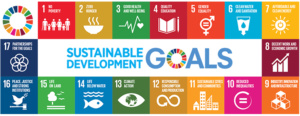The non attainment of the Millennium Development Goals (MDGs) more so as it affects the developing nations prompted the Sustainable Development Goals (SDGs) to be adopted by the United Nations in core areas of making human life worthy of living e.g. health care, education, etc to meeting these policy projects.
 The necessity to complete these have informed on the review of such affected projects in Nigeria and thus the intervention of international NGOs in their urge to get the responsible authorities to fulfill the goals.
The necessity to complete these have informed on the review of such affected projects in Nigeria and thus the intervention of international NGOs in their urge to get the responsible authorities to fulfill the goals.
Governments at all levels in Nigeria have been enjoined to complete abandoned projects littered across the country, especially those projects that have direct bearing to the realisation of the Sustainable Development Goals by 2030.
Also the federal government has been urged to strengthen the anti-corruption institutions and ensure punitive measures against convicted corrupt officials in the country, and to collaborate more with various groups, including communities, CSOs and the media to carry out public awareness, social media campaigns on budget processes.
These calls were contained in communiqués issued at the end of two different training workshops for community stakeholders at the grassroots for fiscal influencing and responsive governance, and training of civil society stakeholders on budget monitoring and basic economic literacy, held recently in Uyo, Akwa Ibom State.
The workshops were organised by the Niger Delta Budget Monitoring Group (NDEBUMOG) in collaboration with Oxfam in Nigeria.
The first was a training workshop on Strategic Partnership for influencing through the Theory of Change (TOC) model as encapsulated in the Financing for Development’s Programme (SPP-I) that is being implemented in Nigeria by Oxfam, NDEBUMOG, CISLAC, Budgit and Kebetkache.
The training was to empower community stakeholders at the grassroots for fiscal influencing and responsive governance. Participants were drawn from Enugu, Akwa Ibom, Bayelsa, Rivers, Delta and the FCT, Abuja.
It was geared at mobilising community stakeholders to be proactive at playing active roles in community development processes, acquaint community stakeholders of the importance for demonstrable inclusiveness in the fiscal processes through the use of factsheets and other tools for mobilisation of women for community development.
Kindly follow us on twitter:@AfricanVoice2









